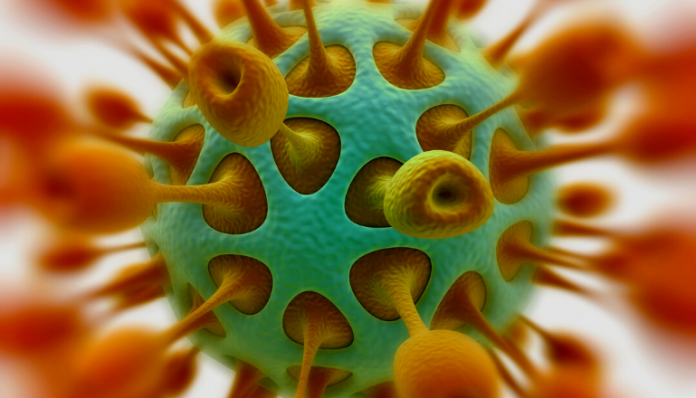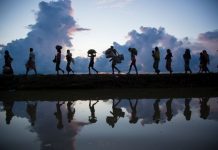This article has been written by Aayushi Singh of Rajeev Gandhi National University of Law, Patiala. It has been written to explain the constitutionality concerning control of epidemic diseases.
Table of Contents
A law of frontier vintage
The Epidemic Diseases Act, 1897, has as its article “better avoidance of the spread of perilous plague ailment”. Focused on curtness, this law doesn’t characterize what is a “pestilence illness”. The Delhi Health Bill which is still on the planning phase utilizes the expression “peril” rather and characterizes it as the episode of infection or pandemic, or any occasion or circumstance or condition that may cause or result in the death toll, mischief to the security, or mischief to the wellbeing of people’s or annihilation of, or harm to, property or any piece of the condition.
Section 2 of the 1897 law says that if the state government is fulfilled that the state or any part is ‘visited by or compromised with a flare-up’ and “common arrangements of law are inadequate’, it can take, require or engage any individual to take measures. This would incorporate accommodating costs and remuneration. Section 2A engages the Central Government to cause investigation of and confine any boat or vessel showing up at any port. Section 3 accommodates punishment and Section 4 ensures activities taken by people in accordance with some basic honesty.
Section 2 of the 1897 law says that if the state government is fulfilled that the state or any part is ‘visited by or compromised with a flare-up’ and “common arrangements of law are inadequate’, it can take, require or engage any individual to take measures.
NEW UPDATED GUIDELINE
On March 12, 2020, under this law, the Lt Governor of Delhi had informed the “Delhi Epidemic Diseases, COVID-19, Regulations, 2020″. The remarkable purpose of the guidelines are, as per the following:
- All medical clinics (private and government) have Flu-corners to test for suspected cases.
- History of movement to be recorded, an asymptomatic individual ought to be set on self – isolate.
- Dispersal of COVID data in print or electronic media.
- Private Laboratories precluded straightforward testing for COVID tests to be directed through Nodal Authority.
- Option to force home or institutional isolate.
- Right to coercive reconnaissance, investigation, request and assessment.
- Obligatory warning commitment on wellbeing experts.
While the curtness of this law may be a full power for the official, we should recollect, this was a pre-established law and post-1950, the restrictions of key rights must be added something extra to the equivalent.
Curing the legitimate lacuna
The chronologically misguided nature of the 1897 law likewise becomes obvious when one looks at the moderately ongoing Disaster Management Act, 2005. The DMA offers a variety of weapons to battle calamities, building up a multi-level framework, with governments and specialists established under or brought inside the domain of the DMA, working at the national, state, region and nearby levels.
Wide running forces have been agreed to the functionaries under the DMA, including limiting or controlling traffic, individuals’ developments, making accessible essential assets, requiring specialists and experts in the field of calamities to give exhortation and help to save and alleviation, acquiring elite or particular utilization of enhancements, sending of military powers, planning with different nations and worldwide associations and so forth. The DMA accommodates the definition of plans, approaches and rules at the national, state and local levels, and requires all specialists to act in agreement. Truth be told, any individual blocking the working of any authority under the Act or execution of its arrangements, is obligated to confront discipline under the DMA.
Plagues as a reason for a crisis?
Article 352 of the constitution manages the announcement of a crisis. As it initially stood, a crisis could be announced on grounds of war, outer hostility and inner unsettling influence. During a crisis, Article 353, licenses (1) the Central government to guide any state on the most proficient method to utilize its official force (2) grants parliament to make laws even in issues which are in the state list. Article 358 suspends Article 19 during crises. Article 359 suspends authorization of central rights during crises. Indira Gandhi’s conjuring of ‘inward aggravation’ as a ground to force crisis on June 25, 1975, provoked the Janata Party-drove government which came to control in 1977 to acquaint the 44th amendment with the constitution. This not just subbed ‘inner aggravation’ as a ground with ‘equipped defiance’ yet, besides, it stopped numerous escape clauses from being uncovered during those dull occasions For example, President Fakhruddin Ali Ahmed acting without bureau guidance and the Supreme Court holding that even the privilege to life stood suspended during a crisis.
It was noted in the report of the Sarkaria Commission, which had been set up to look at Center-State relations, that ‘inner unsettling influence’ was intended to pass on ‘something else’ than essentially inward savagery. Indeed, the report proceeds to express that such an ‘interior aggravation’ may even be ‘nature-made’ and would incorporate pestilences, seismic tremors, typhoons and so forth which may ‘deaden the legislature of the state and put its security in risk’. While ‘inward aggravation’ has been supplanted in Article 352, it keeps on figuring in Article 355. Article 355 throws an obligation on the Union to secure all states against outer hostility and interior unsettling influence and to guarantee that the administration of each state is done as per the arrangements of the Constitution.
Money related crisis and past
The general wellbeing perspective separated, the genuine financial effect of such a worldwide pandemic can’t be envisioned. Parts, for example, the travel industry, travel and amusement could be crushed incomprehensible as would be the destiny of a large number of casual labourers. So our study would stay fragmented if we didn’t address another immaculate established arrangement – Article 360, which accommodates “Money related Emergency”. At the point when this sort of crisis is announced, the Centre can guide the states to “watch such groups of budgetary legitimacy” as it might indicate. It could likewise require all-cash bills passed by state lawmaking bodies to be cleared by the president. Pay rates of government workers, including judges, can be decreased during such a monetary crisis.
While world pioneers are starting developing measures to manage this “mahamari” as an Indian Supreme Court judge has named it, the India executive’s Thursday night address propelled the twin ideas of “Janata check-in time” (individuals’ intentional sequestering) and making clamour in thankfulness for wellbeing labourers at 5 PM on Sunday. How viable these measures would be the truth will surface eventually. There is the dread that if the circumstance declines, we may even observe genuine curfews – as have been forced in places like China, Italy and Iran.
Dealing with COVID-19
From a general wellbeing point of view, there is no contending with the way that a vital lockdown in a wellbeing emergency like the coronavirus episode is both attractive and vital. In any case, from a sacred point of view, forcing an across the nation restriction on a wide range of development (and the repercussions that join it) is legitimately full.
The Epidemic Diseases Act, 1887
It is conjured by the state governments in India furnishes them with clearing police forces to take every single important measure in case of a danger of an episode of a hazardous pandemic infection, which can’t be constrained by normal laws. It accommodates isolation, in an emergency clinic or transitory convenience, of people associated with being contaminated with any such sickness.
Any lockdown would self-clearly bring about the hardship of the opportunity of development and other principal opportunities contained in the Constitution. For many vagrant labourers, who were left jobless and particularly inclined to starvation, the abrupt lockdown promptly turned into a privilege to life and vocation issue. The facts confirm that sacred courts across countries will in general to a great extent concede to government specialists and wellbeing specialists and for the most part maintain ace wellbeing government estimates taken for open great, even at the expense of individual freedom. The situation in India is the same: Fundamental rights are not outright but rather are liable to barely drawn limitations. What’s more, normally, a law planned for accomplishing an obviously depicted general wellbeing objective would almost certainly be invulnerable from an established test.
In any case, to spare itself from such a test, the measure received to advance the general well being objective should fundamentally be reasonable, proportionate and logical in nature (note that the Kosovo protected court has struck down the administration’s choice to boycott development as a measure to handle COVID-19). The 1897 Act, in any case, which famously involves four-and-a-half areas, doesn’t accommodate any procedural shields, components in which forces can be practised by executing officials, insurance of privileges of the individuals who are isolated, logical method of reasoning behind the prohibitive measures, etc (nor do the guidelines that have been as of late gave under the Act).
The Outcomes of the scenario
The outcome is an invalidation of a portion of the centre rights that our Constitution holds dear. For example, in Bareilly, Uttar Pradesh, vagrants returning homes were splashed in fade disinfectant used to sterilize transports. What’s more, in Badaun, a stick-employing police officer is seen on camera making transient specialists — who were apparently strolling back to their towns — to bounce like frogs along a street with sacks tied on their packs. There are different recordings of police officers toppling vegetable trucks, attacking clinical experts, pursuing ceaselessly open in the city with the rod, constraining the conclusion of shops selling fundamental products and in any case holding onto unlimited oversight of the roads.
Rules and Regulations
In the event that the target of the lockdown is to diminish transmission, at that point is exposing residents to automatic home containment the least prohibitive measure that the state governments could have embraced to accomplish that reason? Likely not. As per wellbeing specialists, the infection isn’t airborne and is spread for the most part through respiratory beads, particularly when individuals hack or sniffle.
Since the infection spreads from individual to individual in nearness, the World Health Organization has suggested keeping up the physical separation of in any event one meter to diminish transmission. In such a circumstance, one would comprehend the conclusion of trivial shops and administrations, producing tasks, schools, workplaces, open vehicles and so on to guarantee that individuals don’t come in nearness with one another and for an adequately prolonged stretch of time. In like manner, the conclusion of strict and different social affairs is additionally reasonable. In any case, why are actual officials who are watching the roads expecting that the privilege to the development itself has been suspended — seen uniquely in a crisis? The rules given under the national catastrophe the executive’s law don’t accommodate limitations on the development of people (the issuance of excessively wide rules by the Centre with next to zero meetings with state governments itself needs authenticity yet that is for one more day). What’s more, the Regulations given by governments incompatibility to the 1897 Act — Karnataka, Maharashtra, New Delhi, Tamil Nadu and West Bengal — don’t appear to limit the development of people. As effectively called attention to here, presently under the law, there is no “across the country” lockdown in that capacity: What is restricted or lawfully precluded is open social affairs.
Prime Minister’s Response
The appropriate response may lie in Prime Minister Narendra Modi’s broadcast address. The “remain at home for 21 days” diktat is being seen by those actualizing the lockdown on the ground level as originating from a rulebook, fit for being legitimately authorized on the ground. It is profoundly disturbing to see that the head administrator’s direction and warnings — good-natured as they are — have been taken as accepted lawful status by those actualizing the lockdown. Wellbeing specialists from around the globe have showered acclaimed the administration for being among the most unequivocal in handling COVID-19. Obviously, no ideological group would lose open help for bringing the pain on the novel coronavirus in the midst of well being emergencies such as these, it is for sure enticing to surrender with the extremist idea that the tenet of need knows no law.
Be that as it may, in an established majority rule government, the legislature is limited by the guarantees of the Constitution. A portion of these guarantees is that of freedom, human respect and security. While wellbeing crises, for example, the COVID-19 emergency, may to some degree dark the criticalness of these guarantees, it is basic to construct a rights-based account with the goal that those whose rights are in question can have their voices heard and question government activity on the twin measuring stick of reasonability and lawfulness.
Precautionary measures
One thing in like manner between a few lockdown guidelines is the necessary disengagement/isolation of those tainted with the infection or suspected to be contaminated. As noted over, the privilege to the opportunity of development, similar to some other right, is no uncertainty qualified and obviously spelt out measures could be taken to secure general wellbeing and contain the spread of the infection. Be that as it may, from a sacred law point of view, automatic imprisonment is an outrageous hardship of freedom and must breeze through severe established assessments to achieve authenticity.
Conclusion
This turns into even more significant given that those isolated are being compelled to live in unforgiving, unsanitary offices. For example, in the Bundelkhand locale in Uttar Pradesh, labourers are compelled to live in government schools with no latrine plan or fans. The circumstance is the equivalent for those isolated in government schools in Malda region in West Bengal. One labourer revealed to The Times of India: “There are 125 individuals set up in the school and we all are living respectively with little space. It would be naturally impermissible for the state to keep contaminated people simply on the assumption that the nearness of disease would make the open conceivably powerless to hurt. The appraisal should include not simply considering the idea of the ailment and the likely chains and simplicity of transmission, yet additionally the expectation and the limit of the tainted individual to control conduct and abstain from putting others in danger.
References
4.https://www.loc.gov/law/help/health-emergencies/india.php.
LawSikho has created a telegram group for exchanging legal knowledge, referrals and various opportunities. You can click on this link and join:
 Serato DJ Crack 2025Serato DJ PRO Crack
Serato DJ Crack 2025Serato DJ PRO Crack











 Allow notifications
Allow notifications


